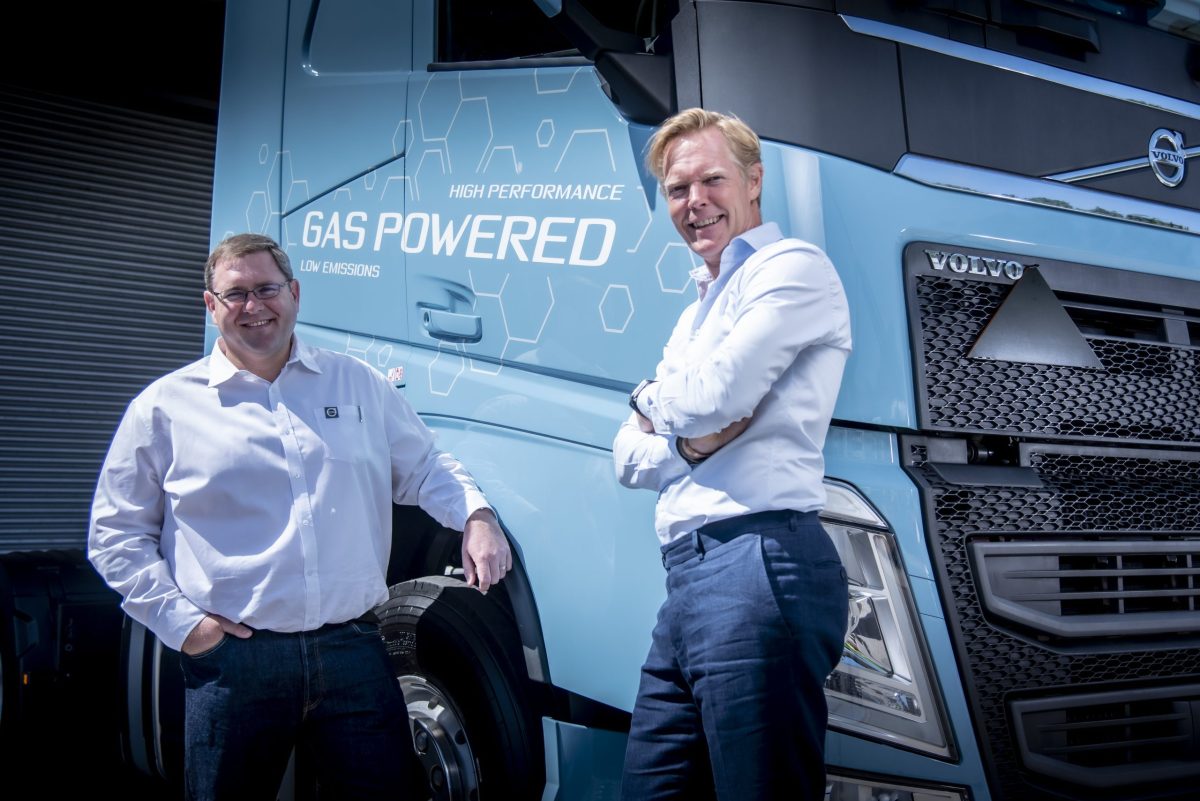
Volvo Trucks Southern Africa has brought in two Liquefied Natural Gas (LNG) trucks to be used for local testing. These gas-powered trucks have specifically been developed for heavy regional and long-haul operations.
“Many of our customers already work hard to reduce their environmental footprint. We therefore see a clear potential for LNG units as a vital part of the solution,” said Marcus Hörberg, vice president of Volvo Group Southern Africa. “Our vision is that trucks from Volvo will eventually have zero emissions, although the way of achieving that is not by one single solution but rather through several solutions in parallel.”
Natural gas has promising potential as a substitute for diesel in trucks, with a good supply globally, and increasing availability locally. When cooled down to low temperatures, the gas liquefies (LNG) and reduces in volume, which means increased capacity to carry more fuel.
Through fuel-efficient drivelines and chassis configurations, Volvo Trucks’ LNG range makes significant fuel and CO² savings possible. Natural gas is obviously a fossil fuel, but it can produce 20 percent lower CO² emissions than diesel.
“The new gas-powered Volvo FH LNG drives and performs just like the Volvo FH you know,” said Eric Parry, product manager of Volvo Trucks Southern Africa. “The powertrain in the new gas-powered trucks is based on our renowned diesel engine technology. Also, by using LNG rather than Compressed Natural Gas (CNG), it is possible to carry larger quantities of fuel and thus ensure the necessary operating range for long-haul assignments.”
Volvo’s new gas-powered trucks offers the same fuel efficiency as diesel-powered equivalents and can operate at the same speed. However, since LNG is often cheaper, this offers a good opportunity to reduce fuel costs. With the 205kg LNG tank, European operators are seeing usable range of up to 1000km, this is dependent on the terrain and payload carried.
“The engine is the heart of any truck,” said Parry. “The gas-powered G13C engine’s efficiency is on a par with diesel and operators can expect the same service intervals, reliability and performance. Just like Volvo’s other Euro 6 trucks, the Volvo FH LNG uses SCR technology with Adblue and a particulate filter for exhaust after-treatment.”
When it comes to the provision of LNG to fleets, new local developments and partnerships in the segment have resulted in the establishment of a limited infrastructure, specifically on the N3 highway between Durban and Johannesburg.
Filling LNG involves a different procedure and some safety precautions due to the low temperatures of the liquid fuel, but its neither complicated nor time consuming by comparison, when done at a commercial filling station.
“As the LNG coverage expands, the viability of running vehicles on this efficient fuel alternative will certainly increase,” said Parry. “We will soon start with local testing to establish how viable this is for our market and customers. Although LNG certainly does hold potential, we should also note that diesel power trucks will be with us for the foreseeable future.”
Volvo Trucks will also assist with driver training to assist fleet owners.
Hörberg concluded by saying that, ”reducing climate-impacting emissions from heavy commercial traffic is a challenge that engages politicians and transport purchasers, haulage companies and vehicle manufacturers. As Volvo Trucks, we are determined to play a leading role in bringing innovative and environmentally friendly transport solutions, that will be good for the industry and the planet.”
More news
- PART 2: DESIGN AND CONSTRUCTION OF SLAB-ON-GROUND: APPLYING ACI 318
- DESIGN AND CONSTRUCTION OF SLAB-ON-GROUND: APPLYING ACI 318
- DOK-ING’s innovative electric mining equipment unveiled at ElectraMining
- CONCOR’S MASTERY IN FAST TRACK PROJECT IMPLEMENTATION UNDERSCORED BY SAFETY AWARD
- PROMINENT SEA POINT HOTEL REFURBS WITH REHAU

